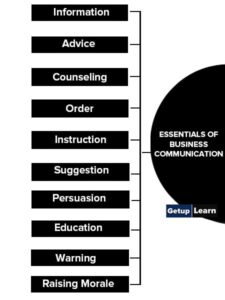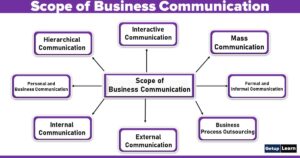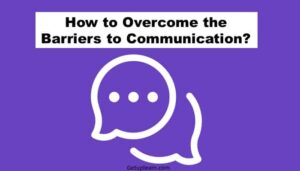Table of Contents
- 1 What is Interpersonal Communication?
- 2 Elements of Interpersonal Communication
- 3 Importance of Interpersonal Communication
- 4 Principles of Interpersonal Communication
- 5 10 Tips for Effective Interpersonal Communication
- 6 Uses of Interpersonal Communication
- 7 FAQ Related to Interpersonal Communication
What is Interpersonal Communication?
Interpersonal communication is the process by which people exchange information, feelings, and meaning through verbal and non-verbal messages: it is face-to-face communication.
Interpersonal communication is not just about what is actually said – the language used – but how it is said and the non-verbal messages sent through tone of voice, facial expressions, gestures and body language.
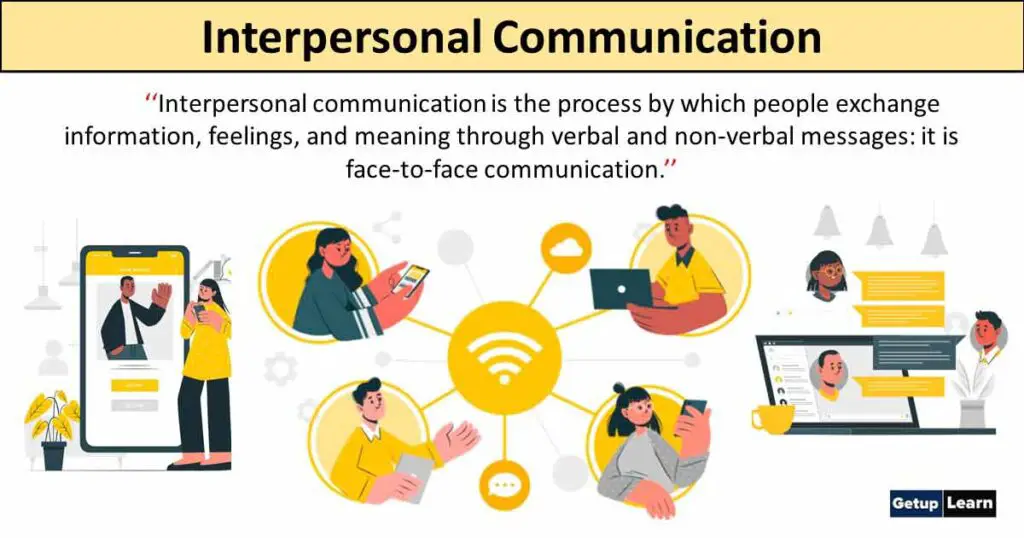
Table of Contents
Elements of Interpersonal Communication
These are the following elements of interpersonal communication include:
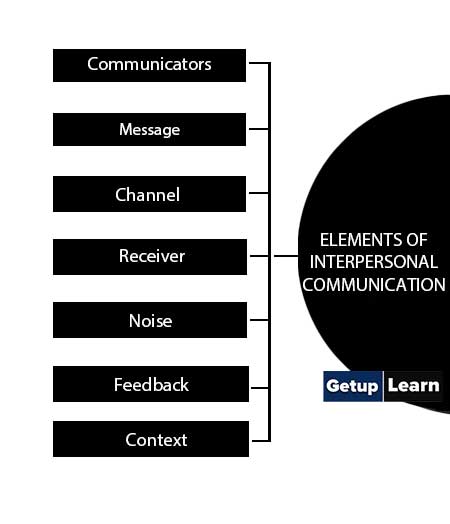
Communicators
For any communication to occur there must be at least two people involved. It is easy to think about communication involving a sender and a receiver of a message. However, the problem with this way of seeing a relationship is that it presents communication as a one-way process where one person sends the message and the other receives it. While one person is talking and another is listening, for example.
In fact, communications are almost always complex, two-way processes, with people sending and receiving messages to and from each other simultaneously. In other words, communication is an interactive process. While one person is talking the other is listening – but while listening they are also sending feedback in the form of smiles, head nods etc.
Message
Message not only means the speech used or information conveyed, but also the non-verbal messages exchanged such as facial expressions, tone of voice, gestures and body language. Non-verbal behaviour can convey additional information about the spoken message.
In particular, it can reveal more about emotional attitudes which may underlie the content of speech.
Channel
The channel refers to the physical means by which the message is transferred from one person to another. In a face-to-face context, the channels which are used are speech and vision, however, during a telephone conversation the channel is limited to speech alone.
Receiver
The receiver of the message is the person or persons who interpret the message and ultimately determine whether your message was understood and appropriate. As we emphasize in this book, effective communicators are other-oriented; they understand that the listener ultimately makes sense of the message they express.
Noise
Noise has a special meaning in communication theory. It refers to anything that distorts the message so that what is received is different from what is intended by the speaker. Whilst physical ‘noise’ (for example, background sounds or a low-flying jet plane) can interfere with communication, other factors are considered to be ‘noise’.
The use of complicated jargon, inappropriate body language, inattention, disinterest, and cultural differences can be considered ‘noise’ in the context of interpersonal communication. In other words, any distortions or inconsistencies that occur during an attempt to communicate can be seen as noise.
Feedback
Feedback consists of messages the receiver returns, which allows the sender to know how accurately the message has been received, as well as the receiver’s reaction. The receiver may also respond to the unintentional message as well as the intentional message.
Types of feedback range from direct verbal statements, for example, “Say that again, I don’t understand”, to subtle facial expressions or changes in posture that might indicate to the sender that the receiver feels uncomfortable with the message. Feedback allows the sender to regulate, adapt or repeat the message in order to improve communication.
Context
All communication is influenced by the context in which it takes place. However, apart from looking at the situational context of where the interaction takes place, for example in a room, office, or perhaps outdoors, the social context also needs to be considered, for example, the roles, responsibilities and relative status of the participants.
The emotional climate and participants’ expectations of the interaction will also affect the communication.
[su_spoiler title=”| Read Some More Related Article in Details |” style=”fancy” icon=”plus-circle”]
[/su_spoiler]
[su_spoiler title=”| Read Some More Related Article in Details |” style=”fancy” icon=”plus-circle”]
- What is Communication?
- Types of Communication
- Nonverbal Communication
- Written Communication
- Business Communication
- Formal Communication
- Group Discussion
- Interpersonal Communication
- Downward Communication
- Barriers to Communication
- Self Development
- Difference Between Oral and Written Communication
- Communication Network
- Business Letter Writing
- Theories of Mass Communication
- Impact of Digital Media
- Scope of Business Communication
- 8 Elements of Mass Communication
- 7 Types of Barriers of Communication
- Advantages and Disadvantages of Oral Communication
- Mass Communication
- Principles of Communication
- Verbal Communication
- Oral Communication
- Organizational Communication
- Informal Communication
- Group Communication
- Development Communication
- Upward Communication
- Horizontal or Lateral Communication
- Effective Communication
- Theories of Communication
- Layout of Business Letter
- Essentials of Business Communication
- Models of Communication
- Human Communication
- 10 Characteristics of Mass Communication
- Functions of Mass communication
- 17 Ways to Overcome Barriers to Communication
- Media of Communication
[/su_spoiler]
Importance of Interpersonal Communication
These are the following points that show the importance of interpersonal communication which are given below:
- Improved Relationships With Family
- Improved Relationships With Friends and Lovers
- Improved Relationships With Colleagues
- Improved Physical and Emotional Health
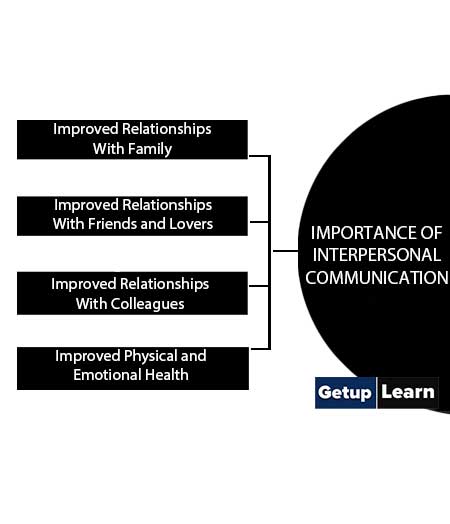
Improved Relationships With Family
Relating to family members can be a challenge. The divorce statistics in the United States document the difficulties that can occur when people live in relationships with others: About half of all marriages end in divorce. We don’t claim that you will avoid all family conflicts or that your family relationships will always be harmonious if you learn the principles and skills of interpersonal communication.
You can, however, develop more options for responding when family communication challenges come your way. You will be more likely to develop creative, constructive solutions to family conflict, if you un-, derstand what’s happening and can promote true dialogue with your spouse, partner, child, parent, brother, or sister. Furthermore, family relationships play a major role in determining how you interact with others.
Family communication author Virginia Satir calls family communication “the largest single factor determining the kinds of relationships [people make] with others.”15 Being able to have conversations with family members and loved ones is the fundamental way of establishing close, personal relationships with them.
Improved Relationships With Friends and Lovers
For unmarried people, developing friendships and falling in love are the top-rated sources of satisfaction and happiness in life.16 Conversely, losing a relationship is among life’s most stressful events. Most people between the ages of 19 and 24 report that they have had from five to six romantic relationships and have been “in love” once or twice.17 Studying inter-personal communication may not unravel all the mysteries of romantic love and friendship, but it can offer insight into behaviours.
Improved Relationships With Colleagues
In many ways, colleagues at work are like family members. Although you choose your friends and lovers, you don’t always have the same flexibility in choosing those with whom or for whom you work. Understanding how relationships develop on the job can help you avoid conflict and stress and increase your sense of satisfaction.
In addition, your success or failure in a job often hinges on how well you get along with supervisors and peers. Several surveys document the importance of quality interpersonal relationships in contributing to success at work.
The abilities to listen to others, manage conflict, and develop quality interpersonal relationships with others are usually at the top of the list of the skills employers seek in today’s job applicants.
Improved Physical and Emotional Health
Positive interpersonal relationships with others have direct benefits for your overall health and happiness. Research has shown that the lack or loss of a close relationship can lead to ill health and even death. Physicians have long observed that patients who are widowed or divorced experience more medical problems such as heart disease, cancer, pneumonia, and diabetes than do married people.
Grief-stricken spouses are more likely than others to die prematurely, especially around the time of the departed spouse’s birthday or near their wedding anniversary. Being childless can also shorten one’s life. One study found that middle-aged, childless wives were almost two and one-half times more likely to die in a given year than those who had at least one child.
Terminally ill patients with a limited number of friends or no social support die sooner than those with stronger ties. Without companions and close friends, opportunities for intimacy and stress-minimizing interpersonal communication are diminished.
Although being in- evolved in intimate interpersonal relationships can lead to conflict and feelings of anger and frustration, researchers suggest that when all is said and done, having close relationships with others is a major source of personal happiness. Studying how to enhance the quality of your communication with others can make life more enjoyable and enhance your overall well-being.
[su_spoiler title=”| Read Some More Related Article in Details |” style=”fancy” icon=”plus-circle”]
[/su_spoiler]
Principles of Interpersonal Communication
These are the 5 principles of interpersonal communication which are given below:
- Connects us to Others
- Irreversible
- Complicated
- Governed by Rules
- Involves Both Content and Relationship Dimensions
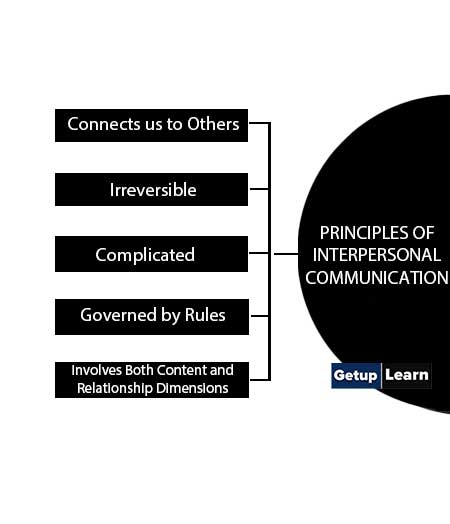
Connects us to Others
Unless you are living in a cave or have become a cloistered monk, you interact with others every day. We agree with author H. D. Duncan, who said, “We do not relate and then talk, but relate in talk.” Fundamental to an understanding of interpersonal communication is the assumption that the quality of interpersonal relationships stems from the quality of communication with others.
As we noted earlier, people can’t communicate. Because people often don’t intend to express ideas or feelings, this perspective is debated among communication scholars. However, there is no question that interpersonal communication is inescapable and that communication connects us to others.
Irreversible
This principle applies to all forms of communication. We may try to modify the meaning of a spoken message by saying something like “Oh, I really didn’t mean it.” But in most cases, the damage has been done. Once created, communication has the physical property of matter; it can’t be uncreated.
Interpersonal communication begins, it never loops back on itself. Instead, it continues to be shaped by the events, experiences, and thoughts of the communication partners. A Russian proverb nicely summarizes the point: “Once a word goes out of your mouth, you can never swallow it again.” Because interpersonal communication is irreversible.
Complicated
No form of communication is simple. If any were, we would know how to reduce the number of misunderstandings and conflicts in our world. One of the purposes of communication, according to communication theorists, is to reduce our uncertainty about what is happening at any given moment. Because of the variables involved in interpersonal exchanges, even simple requests are extremely complex.
Governed by Rules
Interpersonal communication rules are developed by the people involved in the interaction and by the culture in which the individuals are communicating. Many times, we learn communication rules from experience, by observing and interacting with others.
Involves Both Content and Relationship Dimensions
Content Message: The content of a communication message consists of the information, ideas, or suggested action that the speaker wishes to share. You may think that your messages to others are primarily about content, but that’s not the whole story. You also provide clues about your relationship with others.
Relationship Message: The relationship dimension of a communication message offers cues about the emotions, attitudes, and amount of power and control the speaker feels with regard to the other person. This distinction between the content of a message (what is said) and relationship cues (how the message is expressed) explains why a printed transcript can seem to reveal quite a different meaning from a spoken message.
[su_spoiler title=”| Read Some More Related Article in Details |” style=”fancy” icon=”plus-circle”]
[/su_spoiler]
10 Tips for Effective Interpersonal Communication
These are the following 10 tips for effective interpersonal communication which are given below:
- Start With Yourself
- Keep Your Audience in Mind
- Choose Your Timing
- Be Clear About What You Need To Achieve
- Consider Your Tone and Approach
- Be Present
- Be Prepared
- Listen More Than You Talk
- Check Your Understanding
- Be Yourself

Start With Yourself
How well do you know your interpersonal communication strengths and weaknesses? Do you prefer to express your ideas verbally or in writing? Do others feel the same way or have the same impression? If you’re not sure, ask for feedback from a trusted friend or colleague to gauge how others perceive your communication strengths and weaknesses.
Keep Your Audience in Mind
No matter who you’re communicating with, it’s always important to pay attention to your audience. For example, how will they be feeling? What are their expectations? What do you need from them and how can you structure your approach to gain the information or agreement that you’re looking for?
When considering your audience, it’s also important to make sure you’re talking to the right people who actually have the ability to help.
Choose Your Timing
We all know (or should know) there’s a right time and a wrong time to raise certain issues, which means understanding how others think and work, and what current pressures they may be facing. With this in mind, consider whether the conversation you want to hold is difficult or sensitive.
Is it urgent or can it wait? Your choice of timing can make a big difference to how your conversations can go, and how your message might be received.
Be Clear About What You Need To Achieve
Sometimes it’s easy to lose sight of what we’re aiming for when we meet and communicate with others. Perhaps when you’re communicating, you want someone’s perspective – but will they be willing to provide it?
Maybe you need them to do something – but have you made sure that they have sufficient background in order to do the job? Perhaps you are seeking agreement – but have you made sure they have all the facts and be able to make a decision? Being clear about your focus means you can anticipate how ready people will be to engage with you.
Consider Your Tone and Approach
We’ve all had rushed meetings where we haven’t always been sufficiently ‘present’ to be as effective as we need to be. In tips two and three, I addressed audience and timing, but you also need to be in the right space to have the conversations you need.
For example, are you leaving sufficient room to be patient? If not, how will you come across it? Rushed? Impolite? Or will you be in control of the situation and have the mental capacity to engage? This is especially important if the conversation is important to you and the outcomes you want to achieve or when there may be heightened emotions if the topic is difficult.
Be Present
My advice here is similar to point five above, but it’s also about yourself, including the time and energy you invest in the conversation or meeting. This is especially important if someone is coming to you. This perhaps more than anything else helps to build long-lasting relationships where people feel comfortable communicating.
Be Prepared
Just as you need to have a sense of what you’re hoping to achieve, make sure you’re prepared with the background to the conversation or meeting so you can actively listen, ask and respond to questions and enable the conversation to develop a comfortable rhythm.
Listen More Than You Talk
Remember that communication is a two-way process and engaging with another person is to achieve some outcomes. Give people the opportunity to talk, share an alternative perspective, elaborate and grow into the rhythm of the communication. We learn a lot by creating space for others to feel an equal part of our communications.
Check Your Understanding
Often when we’re listening to someone we hear what we want to hear. What’s more, in today’s multicultural environment there is wide scope to misinterpret or to misread non-verbal and/or cultural cues. Good interpersonal skills mean being aware of misunderstandings and developing an approach to clarify and check.
Be Yourself
Perhaps the most important of all! Mostly good interpersonal skills and communication skills are about being natural being yourself. Those who come across as genuine build effective relationships. This doesn’t mean that everyone has to be the same consistency and authenticity is important.
Uses of Interpersonal Communication
These are the following uses of interpersonal communication:
- Give and collect information.
- Influence the attitudes and behaviour of others.
- Form contacts and maintain relationships.
- Make sense of the world and our experiences in it.
- Express personal needs and understand the needs of others.
- Give and receive emotional support.
- Make decisions and solve problems.
- Anticipate and predict behaviour.
- Regulate power.
Read More Related Articles
[su_spoiler title=”What is Communication? | Mass Communication” style=”fancy” icon=”plus-circle”]
What is Communication?
[/su_spoiler]
[su_spoiler title=”Types of Communication | Principles of Communication” style=”fancy” icon=”plus-circle”]
-
Types of Communication
- Verbal Communication
- Non-Verbal Communication
- Written Communication
- Visual Communication
- Feedback Communication
- Mass Communication
- Group Communication
[/su_spoiler]
[su_spoiler title=”Nonverbal Communication | Verbal Communication” style=”fancy” icon=”plus-circle”]
[/su_spoiler]
[su_spoiler title=”Written Communication | Oral Communication” style=”fancy” icon=”plus-circle”]
Written Communication
[/su_spoiler]
[su_spoiler title=”Business Communication | Organizational Communication” style=”fancy” icon=”plus-circle”]
[/su_spoiler]
[su_spoiler title=”Formal Communication | Informal Communication” style=”fancy” icon=”plus-circle”]
[/su_spoiler]
[su_spoiler title=”Interpersonal Communication | Informal Communication” style=”fancy” icon=”plus-circle”]
Interpersonal Communication
[/su_spoiler]
[su_spoiler title=”Downward Communication | Upward Communication” style=”fancy” icon=”plus-circle”]
[/su_spoiler]
[su_spoiler title=”Barriers to Communication | Horizontal or Lateral Communication” style=”fancy” icon=”plus-circle”]
[/su_spoiler]
[su_spoiler title=”Self Development | Effective Communication” style=”fancy” icon=”plus-circle”]
[/su_spoiler]
[su_spoiler title=”Difference Between Oral and Written Communication | Theories of Communication” style=”fancy” icon=”plus-circle”]
[/su_spoiler]
Why is interpersonal communication important?
Interpersonal communication is not just about what is actually said – the language used – but how it is said and the non-verbal messages sent through tone of voice, facial expressions, gestures and body language.
What are the elements of interpersonal communication explain each?
Following are elements of interpersonal communication include:
1. Communicators
2. Message
3.Channel
4. Receiver
5. Noise
6. Feedback
7. Context
What are importance of interpersonal communication?
ImInterpersonal communication is help in Improved Relationships With Family, Friends and Lovers or Colleagues. Improved Physical and Emotional Health.
What are the five main principles of interpersonal communication?
Following 5 principles of interpersonal communication which are given below: Connects us to Others, Irreversible, Complicated, Governed by Rules, Involves Both Content and Relationship Dimensions etc.


